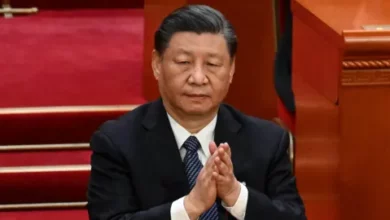
The Muslim Brotherhood’s political arm has criticized Prime Minister Kamal al-Ganzouri for failing to respond effectively to the demands of the revolution, saying his speech at the People’s Assembly on Sunday was weak.
The Freedom and Justice Party’s newspaper said on Monday that Ganzouri ignored major pressing issues, most notably foreign loans, as well as efforts to retrieve funds channeled abroad by the former ruling regime after the January 2011 uprising.
In his address to the assembly, Ganzouri laid much of the blame for the country's dismal economy on what he called foreign betrayals. Western and Arab states, he said, haven't delivered on aid pledges made last summer.
However, the paper said Ganzouri failed to identify the consequences of the illegal funds trial of NGOs and security reform plans.
Hussein Ibrahim, the head of FJP’s parliamentary bloc, was quoted by the paper as saying the prime minister’s statements merely listed his alleged achievements on agricultural improvement. Ibrahim said Ganzouri appeared as if he were addressing MPs from the previously ruling National Democratic Party. He said the prime minister accused unidentified parties of stonewalling Egyptian exports when it is the current government that is responsible for repelling investors.
The newspaper also added that the in his statements, the prime minister failed to discuss the government’s stance on transferring former President Hosni Mubarak from his hospital detention to prison. Ganzouri also did not shed light on Egypt’s relations with other countries, especially Nile Basin countries, according to the newspaper.
The prime minister in his address said the solution for Egypt’s economic conundrums lies in extending development from the Nile Valley to the vaster deserts and Sinai. He said land reclamation alone can solve a string of problems, such as food, unemployment and fuel depletion.
Earlier this month, FJP offered to form a coalition government led by one of its members but later announced that the ruling Supreme Council of the Armed Forces had responded negatively to the idea.




